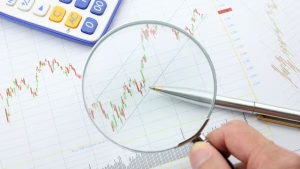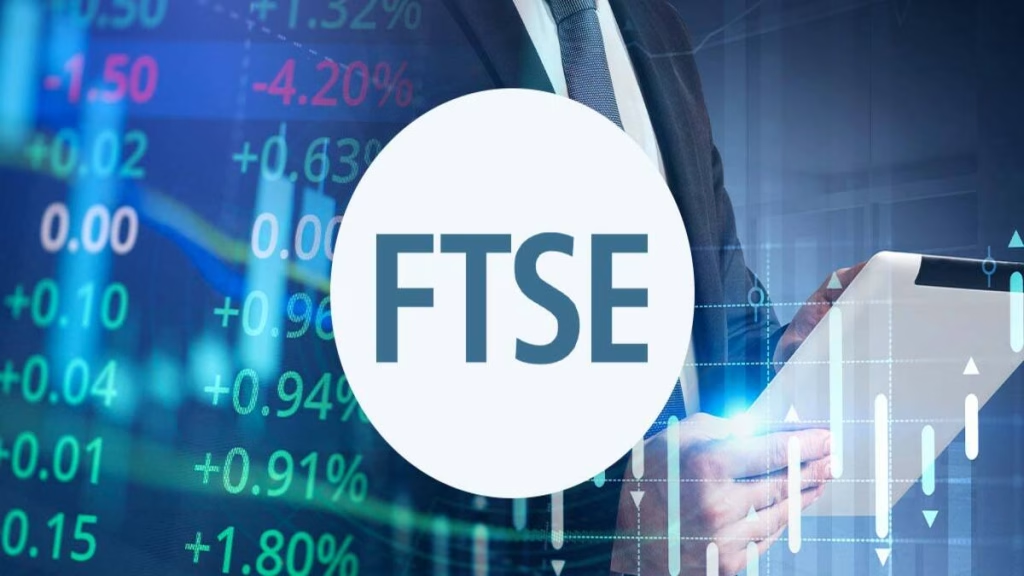Ultimate FTSE 100 Stock Index Guide
The FTSE 100 Stock Index, often referred to simply as the “Footsie,” is one of the most important stock market indices in the world. It represents the 100 largest companies listed on the London Stock Exchange (LSE) and serves as a key indicator of the health of the UK economy and broader financial markets.
Whether you’re a new investor looking to understand global markets or a seasoned trader focusing on UK equities, the FTSE 100 is essential to know. This guide will cover everything from what the FTSE 100 is, how it’s calculated, key companies, performance trends, and how you can invest in it.
What Is the FTSE 100?
The FTSE 100 is managed by FTSE Russell, a subsidiary of the London Stock Exchange Group. It is widely seen as a benchmark for large-cap UK equities and is often used to gauge the performance of the UK economy as a whole.
What Companies Are in the FTSE 100?
The FTSE 100 includes multinational companies from various industries. While headquartered in the UK, many derive significant revenue from international markets, making the index globally influential.
Some well-known FTSE 100 companies include:
- HSBC Holdings (HSBA)
- BP (BP)
- Shell (SHEL)
- Unilever (ULVR)
- GlaxoSmithKline (GSK)
- Diageo (DGE)
- AstraZeneca (AZN)
- Barclays (BARC)
- Tesco (TSCO)
- Rolls-Royce Holdings (RR)
These companies span sectors such as energy, financial services, consumer goods, healthcare, telecommunications, and utilities.
How Is the FTSE 100 Calculated?
The FTSE 100 is a market cap-weighted index, meaning that larger companies have a greater influence on the index’s movement. The formula considers only the free float-adjusted market capitalization, which excludes shares not available for public trading (like government holdings or insider ownership).
Calculation Formula:
The index level is calculated by:
FTSE 100 = (Σ Free Float Market Cap of Constituents) ÷ Index Divisor
The index is reviewed and rebalanced quarterly — in March, June, September, and December — to ensure that only the top 100 qualifying companies are included.
Why Is the FTSE 100 Important?
The FTSE 100 is one of the most tracked indices in Europe and serves several key purposes:
1. Barometer of UK Market Health
It reflects the performance of major UK-listed companies and is often used to assess investor sentiment in the UK.
2. Global Exposure
Many FTSE 100 companies earn revenue from global markets. This makes the index an indicator not only of the UK economy but also of global economic conditions.
3. Benchmark for Funds
The FTSE 100 is a common benchmark for UK mutual funds, pension portfolios, and index-tracking ETFs.
4. Trading Instrument
The index is used widely in futures, options, and CFDs (contracts for difference), making it an important tool for traders.
Sector Breakdown of the FTSE 100
While the exact weightings change over time, the FTSE 100 typically includes the following sector distribution:
- Financials – ~20%
- Energy – ~15%
- Consumer Staples – ~15%
- Healthcare – ~12%
- Industrials – ~10%
- Basic Materials – ~10%
- Utilities, Technology, Real Estate, and Others – ~28%
This diversity makes the FTSE 100 a relatively balanced index compared to tech-heavy indices like the NASDAQ 100.

Historical Performance of the FTSE 100
Since its inception in 1984, the FTSE 100 has had its ups and downs but has generally trended upward over the long term.
Key Milestones:
- 1984:
Launched at 1,000 points
- 1999:
Surpassed 6,900 during the dot-com boom
- 2008:
Dropped significantly during the financial crisis
- 2020:
Hit lows due to the COVID-19 pandemic
- 2023-2025:
Saw recovery, reaching levels around 8,000 points
Average Annual Return:
Over the long term, the FTSE 100 has provided an average annual return of around 7%, including reinvested dividends.
However, the index has underperformed compared to U.S. indices like the S&P 500 in recent years, largely due to slower UK economic growth and a heavier concentration in value-oriented sectors like energy and finance.
FTSE 100 vs. Other Global Indices
| Feature | FTSE 100 | S&P 500 | Nikkei 225 | DAX 40 |
| Country | United Kingdom | United States | Japan | Germany |
| Number of Stocks | 100 | 500 | 225 | 40 |
| Weighting | Market cap-weighted | Market cap-weighted | Price-weighted | Market cap-weighted |
| Sector Focus | Diverse, heavy on energy & finance | Broad, tech-weighted | Industrials & exporters | Industrials, autos, finance |
How to Invest in the FTSE 100
There are multiple ways to gain exposure to the FTSE 100:
1. Index Funds and ETFs
ETFs are the easiest and most cost-effective way to invest in the FTSE 100. Popular options include:
- iShares Core FTSE 100 ETF (ISF)
- Vanguard FTSE 100 UCITS ETF (VUKE)
- Xtrackers FTSE 100 ETF
These funds are traded on stock exchanges just like shares and provide instant diversification.
2. Mutual Funds
Many UK-focused mutual funds include FTSE 100 constituents or track the index directly.
3. Futures and Options
For more advanced investors or traders, derivatives like FTSE 100 futures and options allow for speculation or hedging strategies.
4. Individual Stocks
You can also buy shares in specific FTSE 100 companies through a stockbroker or online trading platform. This offers more control but less diversification.
Risks and Considerations
While the FTSE 100 can be a strong long-term investment, it’s important to understand the risks:
1. Currency Risk
If you’re an international investor, changes in the GBP exchange rate can affect your returns.
2. Sector Bias
Heavy weighting in energy and financials can make the FTSE 100 more sensitive to commodity prices and interest rate changes.
3. Political Uncertainty
The UK market can be affected by geopolitical events, such as Brexit or shifts in trade policy.
4. Lower Tech Exposure
Compared to the S&P 500 or NASDAQ, the FTSE 100 has relatively few technology companies, which may limit growth potential.
Final Thoughts
The FTSE 100 remains one of the most prominent indices in the global financial landscape. As the flagship index of the London Stock Exchange, it offers valuable insight into the performance of large UK companies with significant international reach.








